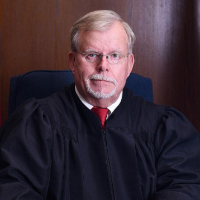Emerald Isle Felony Lawyer, North Carolina
Not enough matches for Emerald Isle Felony lawyer.
Below are all Emerald Isle Criminal lawyers.
Jessie Marie Corwin
✓ VERIFIEDBankruptcy & Debt, Criminal, Family Law, Personal Injury, Traffic
For whatever legal issue or dispute you’re facing, you will need a strong, dependable lawyer by your side to provide the support and guidance you ne... (more)
Peter Mack
✓ VERIFIEDCriminal, Traffic
Peter Mack, Jr. was a district court judge for the 3B Judicial District, serving Carteret, Craven, and Pamlico counties of North Carolina. Mack worked... (more)
Philip Joseph Clarke
White Collar Crime, White Collar Crime, Felony, Criminal, Criminal
Status: In Good Standing



